It’s never too early to start teaching kids how to care for their home (and for you to have an extra set of hands with household chores). You can start teaching chores as early as two years of age, but it’s important to have reasonable expectations of what kids can accomplish at every age (and for every child). Follow this helpful guide on teaching kids chores by age group.
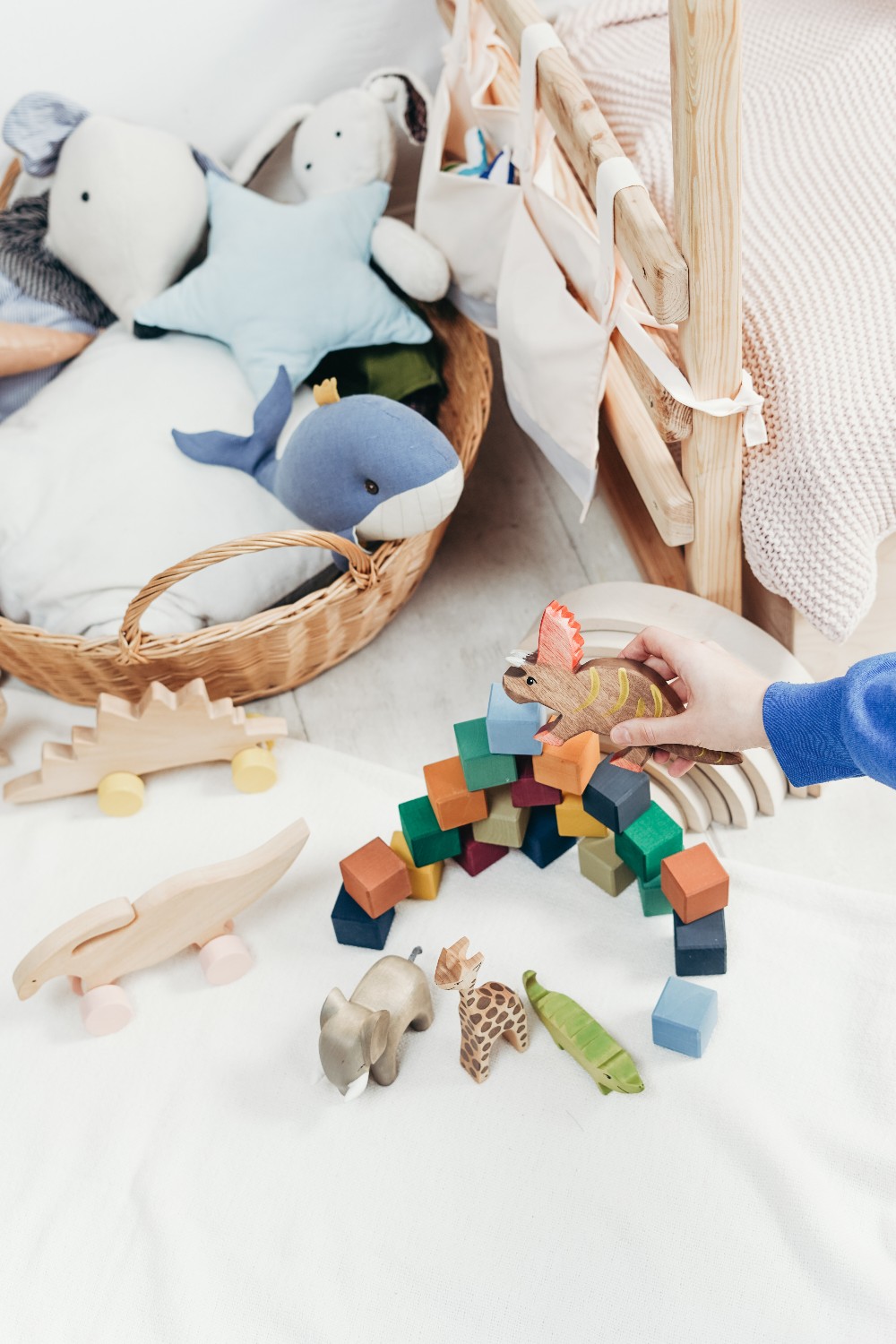
Age 2: Clean Up Toys
By age two, many children are able to put their toys away when they’re done playing with them. Your best bet is to start them as early as they can play with toys: As you tidy up after them, do it in front of them and narrate the tasks as you go. When they’re roughly two, store toys in boxes, bins or baskets on low levels that your children can access. This will make cleaning up even easier for them. At this age, they’ll need lots of reminders to clean up and how to clean up, but do your best to not lose your patience. Practicing cleaning up now will pay off down the road.
Read more: The Cleaning Secrets of People Who Always Have a Spotless Home
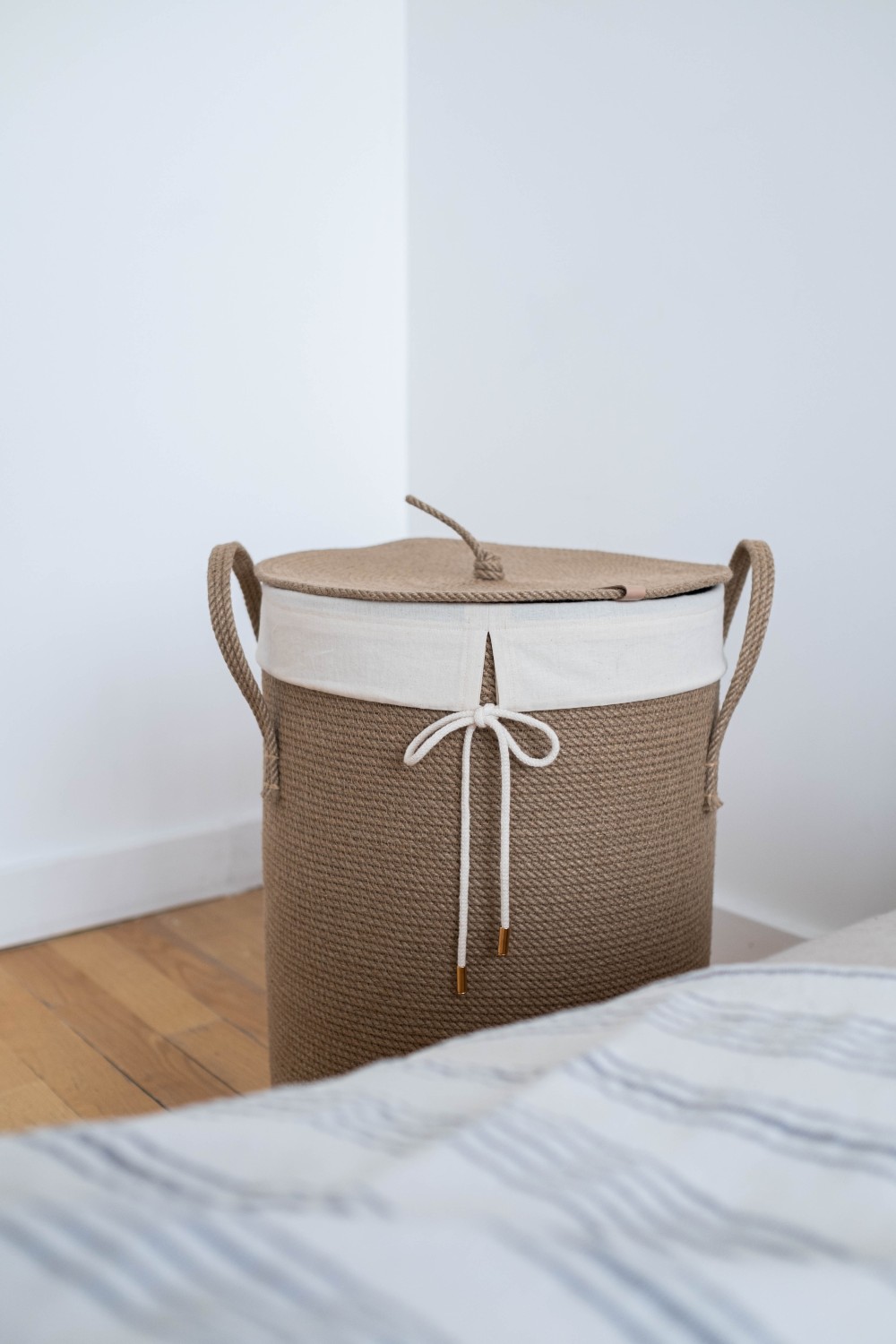
Age 2: Put Dirty Clothes in the Hamper
At two years old, children should be able to follow some very basic instructions. At the end of each day, as you undress them for bed, ask your child to put their own dirty clothes in their laundry hamper. Make the task simple for them by ensuring the basket is open or, if your little one is able to do so, let them open it themselves. They’ll have fun tossing in the clothes, and you can cross one (albeit small) task off your own to-do list! Most importantly, start young and lead by example. If from day one, you end the day by narrating the steps of undressing and putting clothes in the hamper, your little one will intuitively pick up the habit.

Age 4: Clear the Table
By the age of four, you can begin teaching your child to clear their plate at the end of the meal. Your child will have the dexterity and balance to carry a plate and place it on the counter. You can also teach your child to scrape food scraps into the compost bin and place their plate, cup and cutlery in the dishwasher or sink. Children love being helpful, you just need to consistently and patiently demonstrate how they can help, as well as offer lots of encouragement and praise.
Read more: Cutest Family Moments with the Baeumlers

Age 4: Make the Bed Each Morning
When it comes to chores for children ages four and up, look for tasks that your kids can do at the same time each day. A simple daily routine will help them remember the task. Making the bed might still be a stretch at age four, but it’s certainly a task you can do with them, making them feel helpful and verbally encouraging them to build up the habit and skills. While you might be needed for laying the sheets and tucking them in, allow your children to assemble the pillows and never correct or redo their placement. As any parent knows, kids rooms aren’t showrooms – they don’t need to be perfect, and they definitely will not stay perfect throughout the day. Instead, the goal here is to empower children to take on the task independently. If they notice yourself fixing their arranged pillows, they’ll feel discouraged and less motivated to make their own bed.
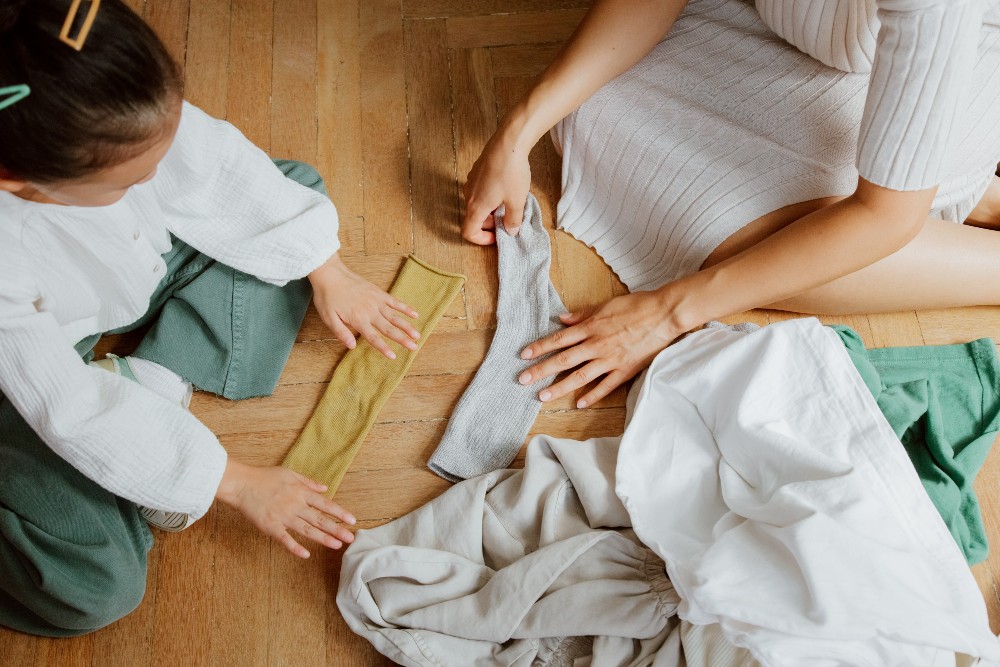
Age 7: Help Fold Laundry
Children might show an interest in helping folding laundry before seven, but by this age they should be able to help with some degree of proficiency. You can make a game out of it, asking children to sort colours, pair socks or time your child to see how fast they can fold. You’d be amazed at what a timer can achieve when it comes to convincing children to do something.
Related: Scott McGillivray Reveals 8 Tips for Designing the Perfect Laundry Room
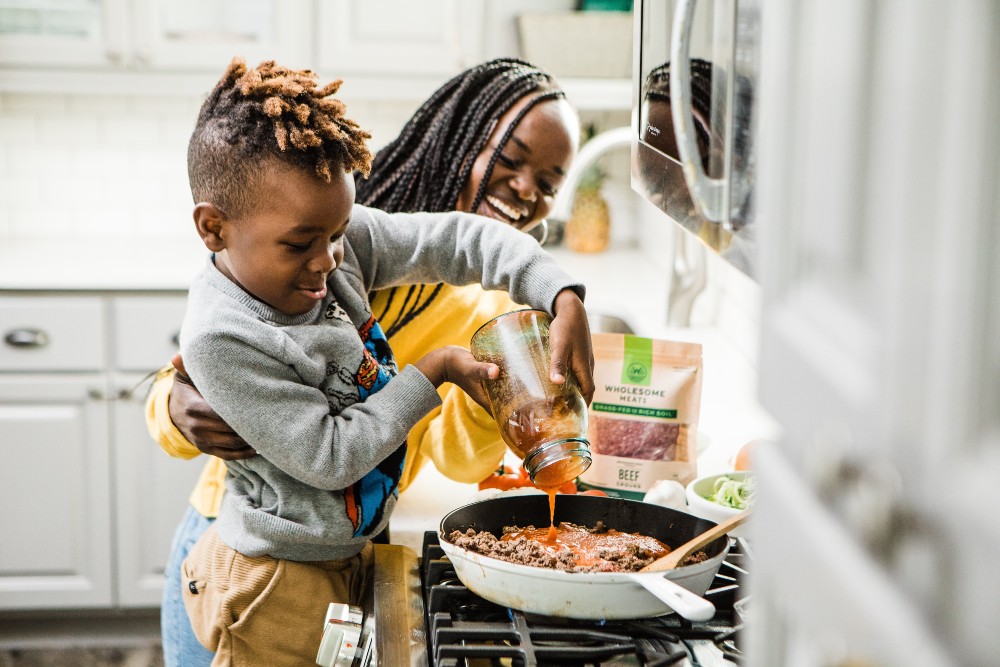
Age 7: Help With Meal Prep
Helping prepare meals is a great way to get children invested in what they’re eating – especially picky eaters! According to some experts, child-safe knives can actually be introduced as early as two (with supervision of course), but by the grand old age of seven, you’ll both have more confidence allowing your child to read measurements, hold and pour items without spilling, and be cautious and aware around hot surfaces.
Related: Clever Ways to Get Your Kids More Involved in the Kitchen
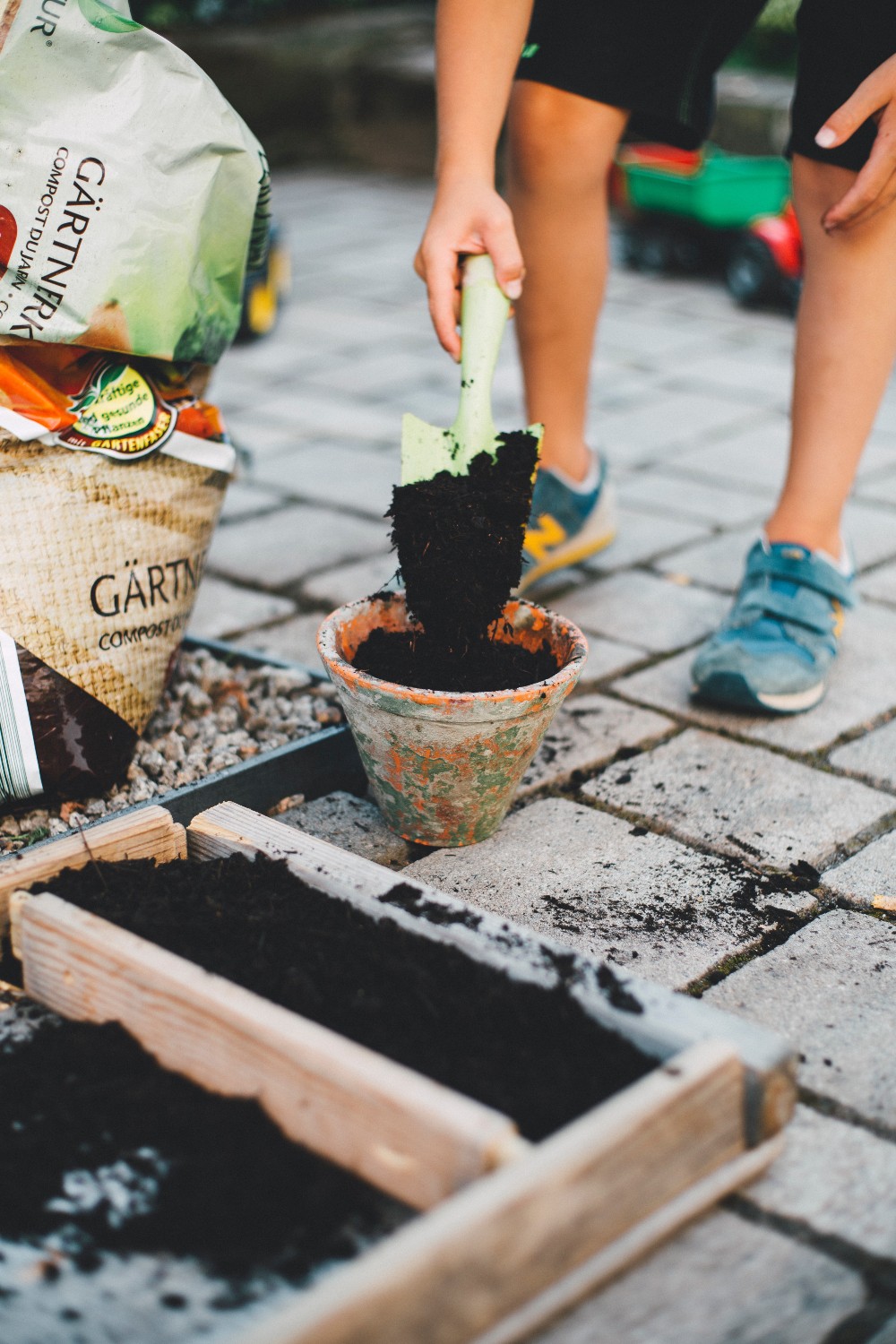
Age 7: Help in the Garden
Gardening is a great chore for the entire family to share. In truth, it can start well before age seven, but by this age they’ll be able to lift heavier items, plant and weed with more precision and take on the responsibility of daily maintenance and watering. Include kids from the very beginning of the season by bringing them along to the garden center to pick out plants and vegetables and getting their input in planning your garden!
Read more: Container Gardening Guide: How to Grow Like a Pro
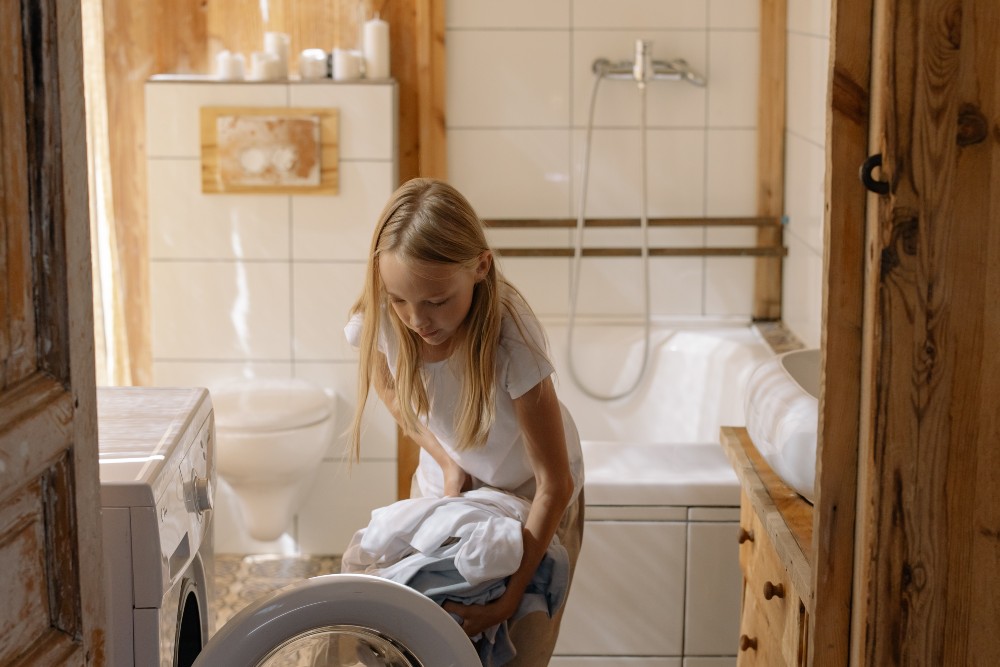
Age 12: Load Laundry, Help With Ironing
By the age of 12, you should be able to teach your child to responsibly use the laundry machine and dryer, sort laundry as needed, fold laundry, and even use an iron (with supervision). Laundry day just became a lot more relaxing in your home!
Related: Some Things You Can and Can’t Wash in the Washing Machine
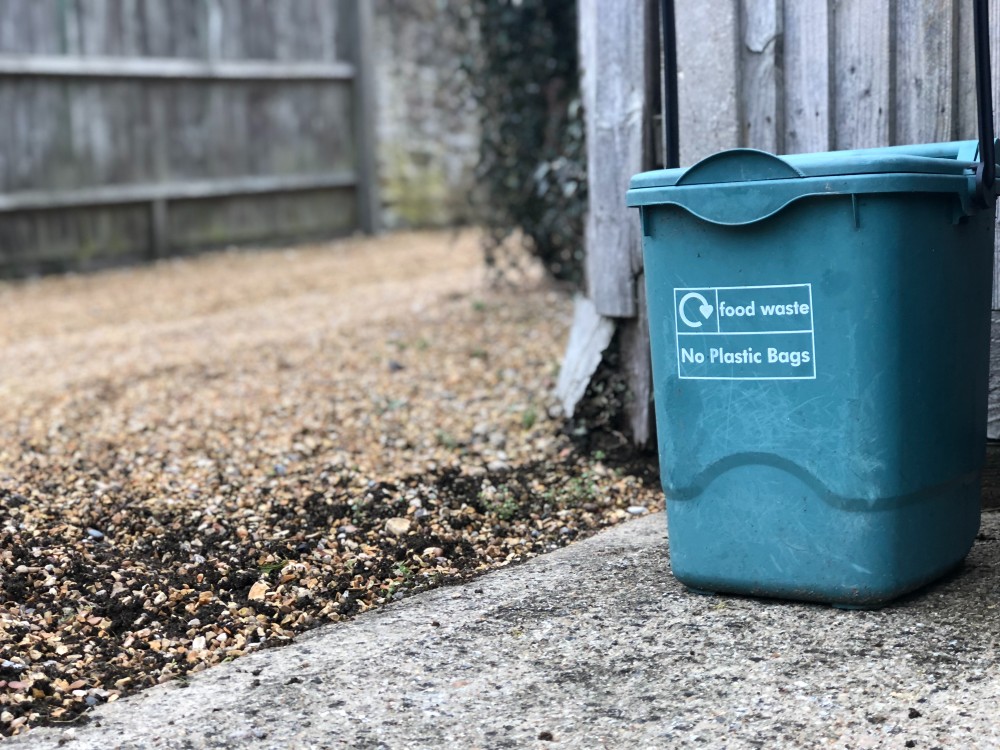
Age 12: Take Out the Garbage
Part chore, part punishment, if you can teach your child to take out the garbage and recycling each week, consider yourself a gold-star parent! But in all seriousness, teaching kids about this responsibility is great training for when they leave the nest. Bonus points for you if you can teach them to clean out the bins, too! Tip: Write out the bin schedule and put it up on a highly visible place like on the fridge. If the timing works, incorporating taking out the bins as part of their routine when leaving for school.
Read more: Our Top 10 Countertop Compost Bins

Age 12: Vacuuming the Floors
Vacuuming for kids is a novelty, and as long as that feeling lasts, you might as well benefit! Teaching your kids how to vacuum, even if its just their own rooms, will make a world of difference as you clean your home. (And maybe inspire them to be a little less messy!)
Related: How to Properly Clean Hardwood So You Don’t Ruin Your Floors
HGTV your inbox.
By clicking "SIGN UP” you agree to receive emails from HGTV and accept Corus' Terms of Use and Corus' Privacy Policy.




